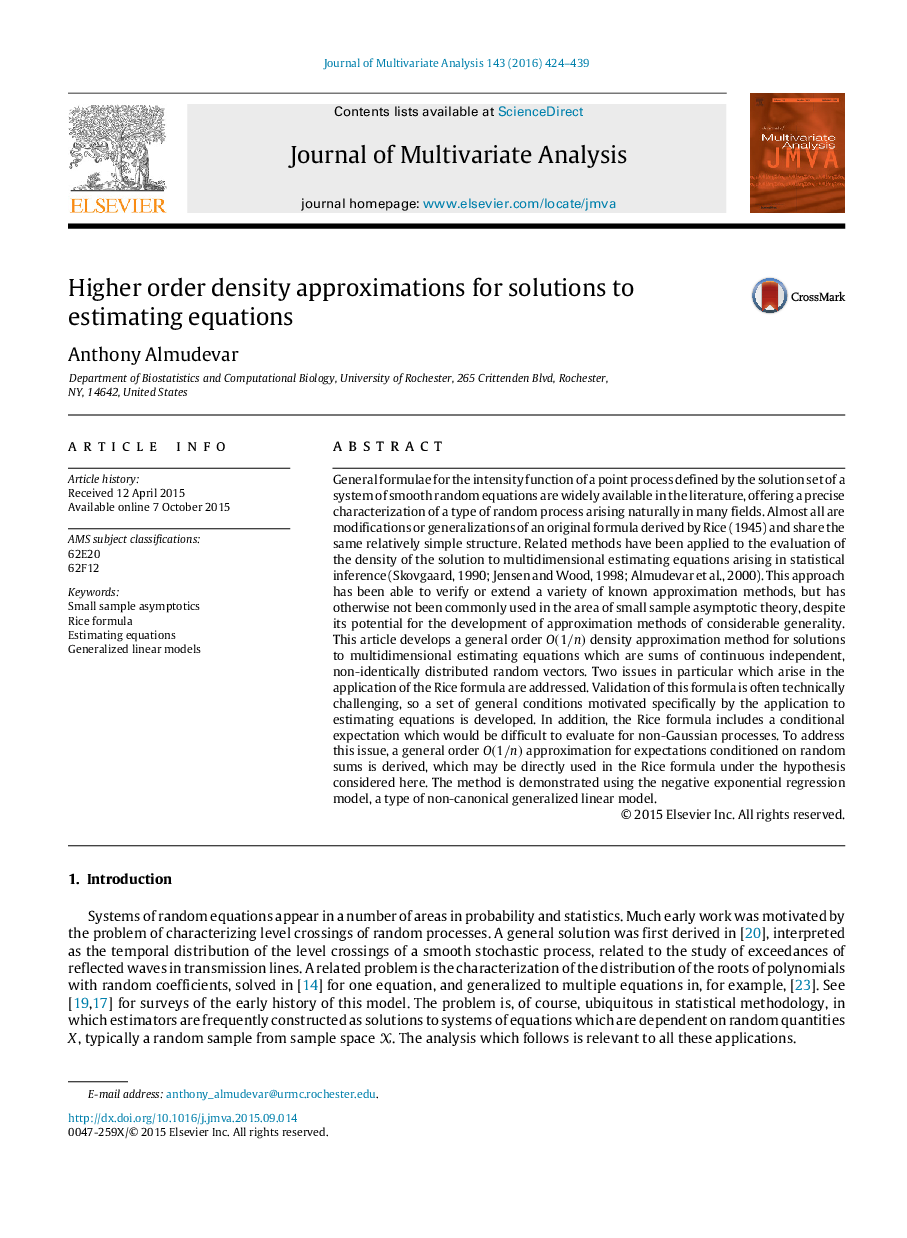| کد مقاله | کد نشریه | سال انتشار | مقاله انگلیسی | نسخه تمام متن |
|---|---|---|---|---|
| 1145312 | 1489657 | 2016 | 16 صفحه PDF | دانلود رایگان |
عنوان انگلیسی مقاله ISI
Higher order density approximations for solutions to estimating equations
ترجمه فارسی عنوان
تقریب چگالی نظم بالاتر برای راه حل برای برآورد معادلات
دانلود مقاله + سفارش ترجمه
دانلود مقاله ISI انگلیسی
رایگان برای ایرانیان
کلمات کلیدی
موضوعات مرتبط
مهندسی و علوم پایه
ریاضیات
آنالیز عددی
چکیده انگلیسی
General formulae for the intensity function of a point process defined by the solution set of a system of smooth random equations are widely available in the literature, offering a precise characterization of a type of random process arising naturally in many fields. Almost all are modifications or generalizations of an original formula derived by Rice (1945) and share the same relatively simple structure. Related methods have been applied to the evaluation of the density of the solution to multidimensional estimating equations arising in statistical inference (Skovgaard, 1990; Jensen and Wood, 1998; Almudevar et al., 2000). This approach has been able to verify or extend a variety of known approximation methods, but has otherwise not been commonly used in the area of small sample asymptotic theory, despite its potential for the development of approximation methods of considerable generality. This article develops a general order O(1/n) density approximation method for solutions to multidimensional estimating equations which are sums of continuous independent, non-identically distributed random vectors. Two issues in particular which arise in the application of the Rice formula are addressed. Validation of this formula is often technically challenging, so a set of general conditions motivated specifically by the application to estimating equations is developed. In addition, the Rice formula includes a conditional expectation which would be difficult to evaluate for non-Gaussian processes. To address this issue, a general order O(1/n) approximation for expectations conditioned on random sums is derived, which may be directly used in the Rice formula under the hypothesis considered here. The method is demonstrated using the negative exponential regression model, a type of non-canonical generalized linear model.
ناشر
Database: Elsevier - ScienceDirect (ساینس دایرکت)
Journal: Journal of Multivariate Analysis - Volume 143, January 2016, Pages 424-439
Journal: Journal of Multivariate Analysis - Volume 143, January 2016, Pages 424-439
نویسندگان
Anthony Almudevar,
